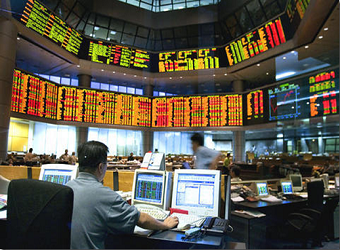The euro dropped to a 20-month low on Monday in Asia as investors assessed the implications of the resignation of Italian Prime Minister Matteo Renzi after he suffered a humiliating defeat in a referendum over constitutional reforms.
As well, Asian shares were in negative territory on Monday with Australia’s ASX 200 down 0.88 percent, but declines were capped by its utilities sub-index, which was up 2.77 percent.
Elsewhere, the NZX 50 fell 0.685 percent as Prime Minister John Key said he would resign, citing it as “the right time” as he would not seek a fourth term. The New Zealand dollar was weaker against the dollar at 0.7087 as of 11:21 am HK/SIN, near a session low against the dollar of 0.7070.
Chinese shares were lower after the long-awaited Shenzhen-Hong Kong Stock Connect launched today, which will give mainland investors access to Hong Kong-listed stocks, and allow international investors to trade Shenzhen-listed stocks.
The Shanghai composite shed 1.31 percent, after China securities regulator chairman Liu Shiyu called company buy-outs by some asset managers “barbaric” on Saturday. The Shenzhen composite slipped 0.666 percent. In Hong Kong, the Hang Seng index was down 0.22 percent.
China’s services sector rose to a 16-month high in November with a Caixin/Markit servies purchasing managers’ index (PMI) of 53.1, from 52.4 in October. A reading above 50 indicates expansion in the services sector.
In Japan, the Nikkei 225 fell 0.64 percent, as South Korea’s Kospi inched down 0.25 percent.
Taiwan’s benchmark Taiex was near flat. The east Asian country generated headlines over the weekend after Donald Trump tweeted that the Taiwan president Tsai Ing-wen had given him a congratulatory phone call.
The conversation might have been viewed by China as a change in U.S. foreign policy, as it considers Taiwan a breakaway province. As well on Sunday, Trump has lashed out again at China, accusing Beijing of manipulating its currency, unfairly taxing U.S. products and militarizing the South China Sea.
On the European news front, Renzi said Monday Asian time that Italian voters had shown a clear rejection of legislative reform and that he would meet with his cabinet on Monday and then hand in his resignation to the President Sergio Mattarella.
“The risks by Italy’s ‘no’ vote was about the potential for political instability and the possibility of an election in Italy rather than with any missed opportunity for long term constitutional reform,” said Ric Spooner, chief market analyst at CMC Markets, in a note on Monday.
“The real concern for markets is whether this situation may ultimately lead to election of the Five Star Movement whose policy is to hold a referendum on whether Italy should remain in the euro zone. While it is unclear whether Italy can actually leave, the potential for a referendum like this would see significant risk premium built in to markets,” he added.
The common currency fell against the dollar to trade at 1.0537 as of 11:27 am HK/SIN and touched a two-year low at $1.0505 earlier. Against the yen, the euro fetched 119.66, compared to 120.8 levels seen last week.
As for the euro’s action after exit polls pointed to a significant “No” victory, Marc Chandler, global head of currency strategy at Brown Brothers Harriman, said he saw the currency as testing an old low from a few weeks ago but not necessarily indicating a major slide.
“We’ve made a marginal new low, but it held 1.05 and things look stable,” he said, adding that the fall took place “in very thin Asian trading.”
The dollar index, which measures the greenback against a basket of six major currencies, traded 0.67 percent higher at 101.45.
During Asian trade, U.S. crude futures were trading down 0.85 percent at $51.24 a barrel while Brent futures shed 0.81 percent at $54.02.
U.S. crude futures rose 12 percent for the week ending December 2, its biggest weekly gain since 2011, while Brent futures gained 15 percent last week, its largest gain since 2009.
Last Friday, the Dow Jones industrial average finished down 0.11 percent at 19,170.42, the S&P 500 closed 0.04 percent higher at 2,191.95 and the Nasdaq composite finished up 0.09 percent at 5,255.65.
The U.S. released nonfarm payrolls last Friday which showed the economy added 178,000 in November, with unemployment rate falling to 4.6 percent, compared to a Reuters poll expecting a gain of just 175,000 with unemployment rate holding at 4.9 percent.
Source: CNBC
